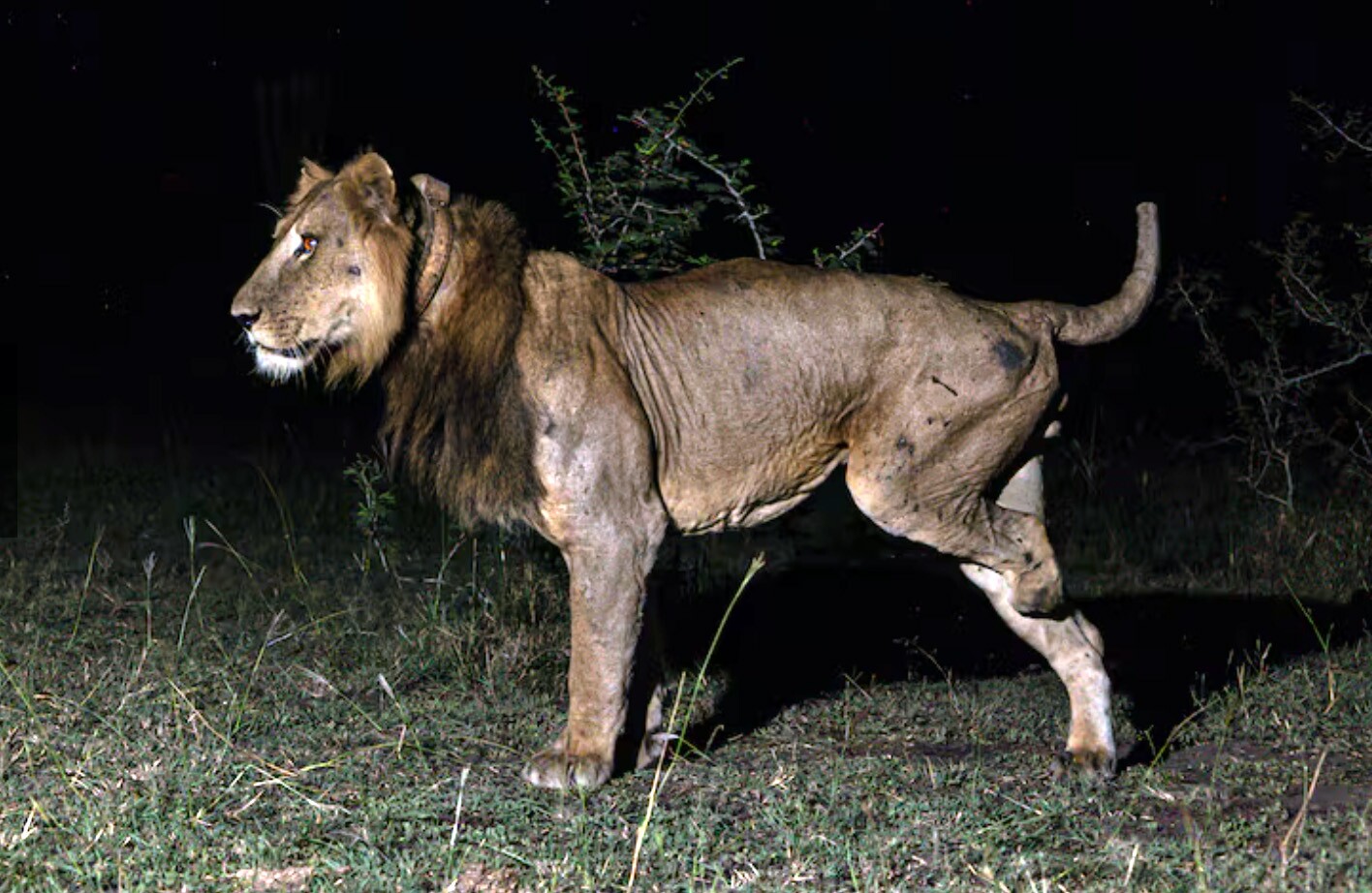Lion brothers set a death-defying record and swim through a river full of crocodiles

Two lion siblings have set a new long-distance swimming record by paddling through a dangerous stretch of river teeming with crocodiles and hippos in search of female mates.
The nighttime swim across the Kazinga Channel in Uganda was captured by an H20T thermal imaging camera mounted on a DJI Matrice 300 drone and shows Jacob and Tibu testing the water before attempting the crossing, covering more than 1.3 km, more than ten times the distance believed to be the longest lion paddling trip ever recorded. African lions (Panthera leo) would typically cover about 10–100 m (33–330 ft).
This achievement is all the more impressive given that ten-year-old Jacob, who is well known to rangers and researchers in Queen Elizabeth National Park, has only three legs and is lucky to be alive.
“Jacob has had an incredible journey and is truly a cat with nine lives,” said Alexander Braczkowski of Griffith University in Australia. “I would bet everything I own that we are dealing with Africa’s most resilient lion: he was gored by a buffalo, his family was poisoned for trading lion body parts, he was caught in a poacher’s snare and finally lost his leg in another poaching attempt when he was caught in a steel trap.”

Griffith University
The swim didn’t go smoothly either. In the video, the pair – known as the Lion Coalition – can be seen entering the water and then quickly returning to the safety of the river bank. On their second attempt, they manage about 80m before changing their minds and swimming back to shore. On the third attempt, only one of the lions sets off, but he appears to become frightened at about the same distance as the previous swim and paddles back to his brother. Just when it looks like they are doomed to be stuck on this one side of the channel, the pair decide to make the crossing.
While the observation ends just before the lions safely return to land, researchers were able to observe Jacob and Tibu near a ravine near where they had crossed the channel. It is an incredible feat for the siblings and especially for Jacob, whose three-legged paddle was somehow enough to escape the river’s predators.
Lions swim through waters full of predators – the longest distance ever recorded
“His swimming feat through a canal full of hippos and crocodiles is a record-breaking feat and a truly astonishing testament to his resilience in the face of such danger,” said Braczkowski. “The fact that he and his brother Tibu managed to survive for so long in a national park that has faced significant human pressure and high poaching rates is an achievement in itself – our science has shown that this population has almost halved in just five years.”
Since animal behavior is largely determined by energy expenditure, scientists believe Jacob and Tibu viewed this difficult journey as a matter of life and death when it came to finding a mate. Given the dwindling lion population in the park and a recent defeat, the pair felt swimming was their only option.
“The brothers were probably looking for females,” Braczkowski said. “Competition for lionesses in the park is fierce and they lost a battle for the affection of females in the hours before the swim. Therefore, it is likely that the duo made the risky journey to get to the females on the other side of the channel.”
And although there is a small bridge connecting the two areas, the lions would have risked encountering humans along the way. Because of Jacob’s previous experiences with poachers that had narrowly resulted in his death, he and his brother seemed more willing to try their luck with Nile crocodiles underwater (Nile crocodile) and hippos (Hippopotamus amphibius).
Their tremendous long-distance swimming feat also highlights another major and underestimated threat to species survival and biodiversity: population fragmentation. Male lions will leave their range when they cannot find food or a mate, or have too many territorial disputes with more dominant individuals. But when a habitat becomes too fragmented, often by deforestation and development, the distance an animal must travel to reach another population becomes too great. Populations become isolated and then face a range of problems, from resource competition to inbreeding, ultimately leading to population decline.
Jacob and Tibu were lucky, but Braczkowski, who is conducting a long-term study of this species and other predators in Uganda’s national parks, noted that for many lions, this dangerous journey would not have a happy ending.
“Jacob and Tibu’s great swim is another important example of how some of our most beloved wildlife species must make difficult choices just to find a home and a mate in a human-dominated world,” he added.
The study was published in the journal Ecology and Evolution.
Source: Griffith University



